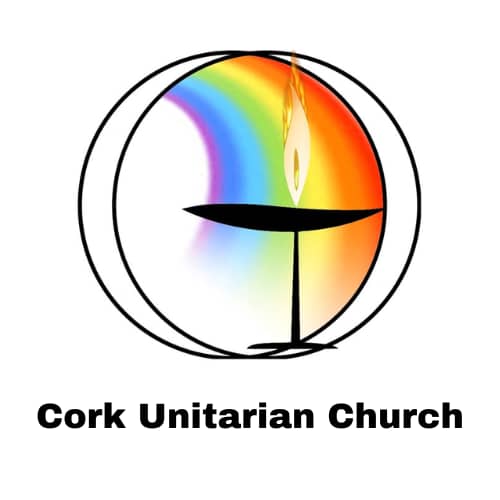
To get a really good idea about Unitarian perspective on spirituality read the links on our Ideals page.
However here are some of the more common questions that come up when people ask about Unitarians:
What is the History of Unitarianism?
The Unitarian faith as an organised church began in 16th century Europe, before spreading to England and the United States. Today, it is a world wide church. Here in Ireland there are 2 Unitarian churches, Cork and St Stephens Green, Dublin. Both date back to the 1700’s. Here in Ireland we are part of the Non-Subscribing Presbyterian Church of Ireland (NSPCI). As a faith, we do not impose either creed or dogma, we see these as being man made tests of faith.
What Do Unitarians believe about God?
We essentially believe in the Oneness and the Unity of God. We recognise the word God, is only one name, that God has many names and finds expression in many different ways. We acknowledge that individual definitions and understandings of God, can and do vary from person to person. This is certainly the case within a typical Unitarian congregation. These definitions may see God as a Universal Mother or Father or a combination of both. The Source of All being within which the creative process is unfolding. God maybe seen by some as a symbol for our highest aspirations. The truth is that which we call God, is the great mystery which many find difficult to define, while many find such definitions to be restrictive.
What about Jesus?
Jesus is generally viewed by Unitarians as a major, if not central figure in the spiritual journey of humankind. He is for many, the highest e.g. of integrity, compassion and compassion. For most Unitarians, Jesus was a human being and is not seen as a deity. Unitarian church services do not worship Jesus but see his life as one that symbolises the highest potential inherent within us all. We generally do not subscribe to the various creeds and dogmas built up around Jesus. Most, if not all Unitarians will have problems with concepts such as the Virgin birth. We also recognise other human spiritual leaders, like Jesus, have much to teach us.
What about the Bible?
We generally regard the Bible as a deep source of wisdom and insight but not as an unquestionable authority. Unitarians who choose to read the Bible are urged to do with the application of reason and context. The Bible was written thousands of years ago when the understanding of our physical world and life itself was vastly different from today. We recognise that spiritual wisdom is not to be found within the pages of the Bible alone. The sacred texts of other religions may also be valuable tools in our journey to understand that which we call God.
Hell and Sin?
If Unitarians mention the word hell and that can be rare, it is usually in terms of this world. It may sadly describe the states of desolation and alienation into which humans can fall into. We do not view Hell as pre-ordained place of punishment, in fact, we don’t generally see it as a place at all. Most, if not all Unitarians, do not see that which we call the Devil as having any objective existence. The concept of Original Sin does not find any favour with Unitarians. In terms of sin, it is not a word generally used in terms of disappointing God. Rather, we are usually all too aware when we fall short of our standards. We do not have confession and our clergy do not forgive you of your sins.
What about Unitarian views on Life after Death?
This is a very personal issue and each will have their own views on whether life after death exists and what form it may take. The truth is, we don’t know. Some may see it as a returning to God, some may believe in the concept of a Heaven. We believe that a life lived in honesty and goodwill is the best preparation for the inevitable arrival of death, whatever lies beyond it.
What about other faiths?
We see all of the worlds major religions as having wisdom to offer. as such we are a very ecumenically orientated church. Our minister is secretary of the Cork 3 Faiths Forum, we have a monthly Friday Jazz Service with the Methodist church and the pulpit in our church was a gift from the Church of Ireland. As a part of the NSPCI, we are a member of the Irish Council of Churches.
Do you celebrate Christmas and Easter?
Yes we do. They are important days in the life of the church. We respect that our members will have their own personal interpretations as to the significance of these holidays for themselves.
What are your views on same sex marriage?
We are an inclusive church. We see responsible love within consensual relationships as being reflective of what we believe to be God’s love for all people. We accept members of the LGBTI community into our community and as such rites of passage are open to all.
Do you marry divorced people?
Divorced people are free to marry within our church, it is advisable to chat with the minister. Our weddings are recognised by the law and our ministers are registered as celebrants with the HSE ( as clergy of all churches are now required to be)
Do your clergy marry and does your church ordain women?
The answer to both is Yes.
Do you baptise children?
We do offer baptism in the traditional sense or you may opt for a Naming Ceremony. In both cases, your child does not become a member of the church. We believe that is a decision for the child to make when they are older.
What is a typical Sunday service like?
Sunday service is at 11am. It consists of music, both hymns and secular, prayers that are modern in expression, theology and langauge and readings that may be from any source that offers a deeper reflection on life. We do not kneel during services. Like all churches, there is a homily or sermon but the minister will not tell you what to believe or how to live your life. We have Communion, twice a year, in May and November, this takes place after the main service and attendance is optional.
Due to Covid -19, numbers attending the church are restricted by social distancing but our services are broadcast live on our Facebook page.
How is your church run?
The temporal affairs of the church are run by our Minister and a Management Committee, which is elected by the congregation. There is also a Vestry to assist our Minister with the spiritual life of the church and its mission.
